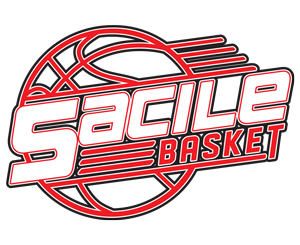Sugar High? No, It’s Just Good Strategy: Tips from Pro Players
When it comes to competitive gaming, there’s a common misconception that success is solely dependent on quick reflexes and lightning-fast decision-making. However, experienced players will tell you that strategy plays just as big of a role in winning championships as raw skill does.
In this article, we’ll delve into the strategies employed by Sugar Craze Bonanza top gamers from various esports disciplines. From last-hitting minions to outmaneuvering opponents, these experts will share their insights on what sets them apart from the competition.
Mastering Game Knowledge
A deep understanding of the game mechanics is crucial for success at any level. This isn’t just about knowing the ins and outs of a particular title – it’s also about being aware of the community’s collective knowledge and how to apply it in-game.
For example, professional Dota 2 player, Kuro "KuroKy" Takhasomi, emphasizes the importance of staying up-to-date with the meta. "The game is constantly evolving, and what works today might not work tomorrow," he notes. "It’s essential to stay informed about patch changes, pro builds, and general trends in the community."
Map Control: The Foundation of Victory
In games like League of Legends or Overwatch, map control can make all the difference between winning and losing. By securing strategic positions on the map, teams can dictate the flow of battle and limit their opponents’ movements.
"I always stress to my teammates that we need to prioritize map control," explains Ilya "PerfectLegend" Merkushev, a professional CS:GO player. "By holding key areas like A or B, we’re able to funnel our enemies into kill zones and make it easier for us to take them out."
The Power of Economy Management
In games with resource-gathering mechanics, managing your economy effectively can be the difference between victory and defeat. This involves balancing income with spending, making sure you have enough resources on hand for major purchases without overextending yourself.
"I’m very particular about my economy management in League," remarks professional player, Lee "Faker" Sang-hyeok. "It’s essential to have a solid understanding of how your gold and items are flowing, so you can make informed decisions during team fights."
Adaptability: The Key to Success
In the heat of competition, adaptability is crucial for pro players. Being able to adjust strategies mid-game or responding to unexpected developments from opponents requires a high degree of situational awareness.
"I’ve seen many games where our team has been struggling to gain an advantage," shares professional player, Joona "Serral" Sotala. "In those situations, we need to be flexible and willing to pivot to a new strategy. It’s not about being rigid with your plan; it’s about being open to changing direction if the situation calls for it."
Micro-Management: The Art of Small-Town Planning
Some games require players to manage complex systems or micromanage small units. This can be particularly challenging, as one misstep can have significant consequences.
"Playing StarCraft II is all about finding that delicate balance between offense and defense," notes Lee "INnoVation" Shin Hyung-sik, a professional player with extensive experience in the title. "You need to anticipate your opponent’s moves while keeping an eye on your own economy, tech tree, and army composition."
Game Knowledge vs. Instinct
While instincts can be valuable in high-pressure situations, they shouldn’t replace game knowledge. A solid understanding of the meta, patch notes, and community trends is essential for making informed decisions.
"Many players rely too heavily on their intuition," warns professional player, Gabriel "FalleN" Toledo. "However, when you’re playing at a professional level, it’s no longer about ‘feeling’ something out – it’s about knowing the numbers, understanding the math behind your decisions."
Embracing Losses: The Importance of Post-Mortem Analysis
Even top-tier players experience losses from time to time. However, it’s how they respond to these setbacks that truly sets them apart.
"A loss is not a failure; it’s an opportunity for growth," states professional player, Olof "olofm" Kajbjer. "After every game, we conduct post-mortem analysis – we dissect what went wrong and identify areas where we can improve."
Conclusion
Competitive gaming requires more than just raw skill or quick reflexes; it demands a deep understanding of the game’s mechanics, an awareness of community trends, and adaptability in the face of adversity. By studying the strategies employed by top gamers, aspiring players can gain valuable insights that will elevate their gameplay to new heights.
In the words of PerfectLegend: "A sugar high might feel exhilarating, but it won’t get you far in the long run. It’s only through a combination of knowledge, strategy, and determination that we truly succeed in the world of competitive gaming."
